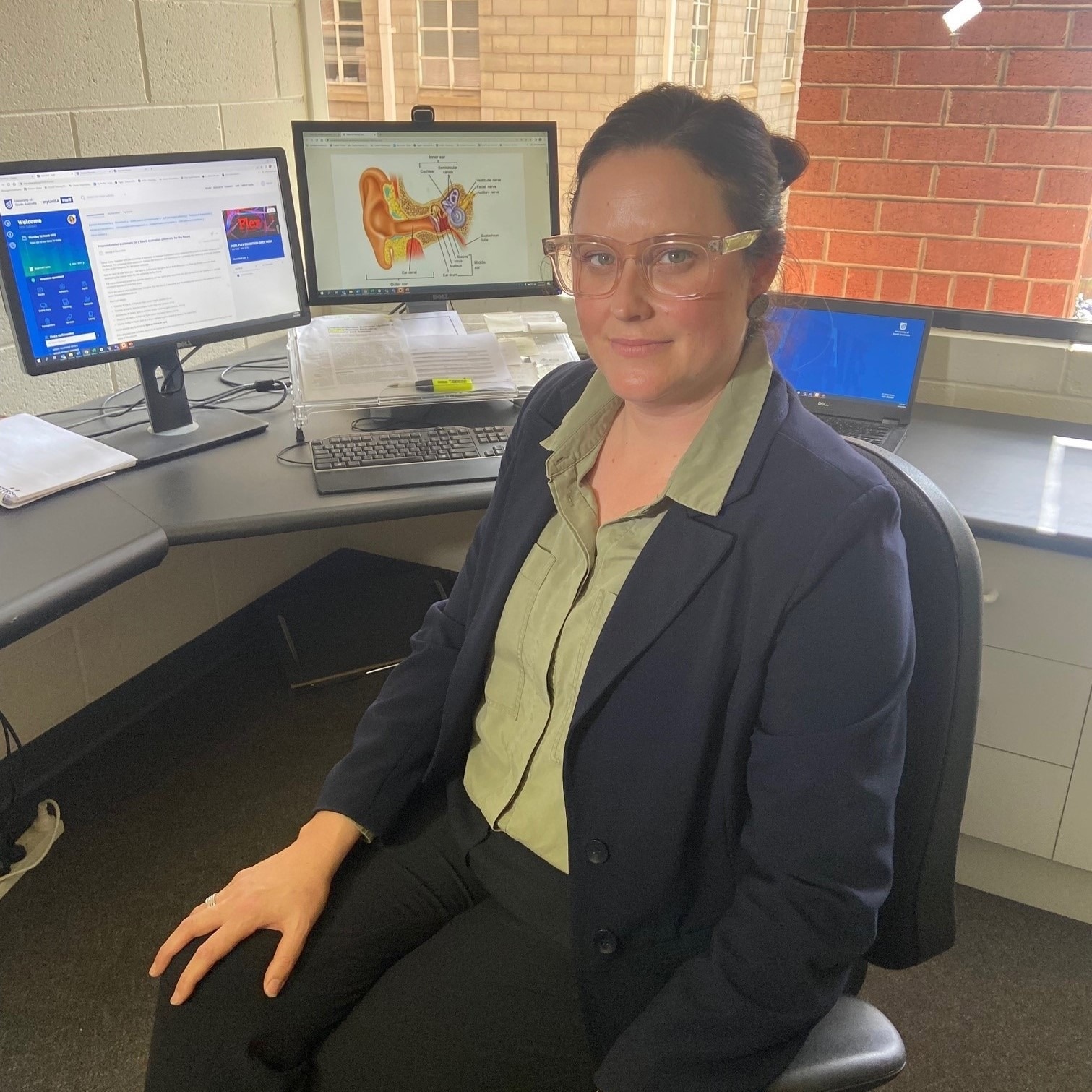Her findings and recommendations are published in the latest edition of the British Medical Journal Case Reports.
Gibson developed acute hearing loss in one ear, along with vertigo and tinnitus, several weeks after experiencing a mild COVID-19 infection in 2022.
She was referred to an otolaryngologist who confirmed sensorineural hearing loss, a little-known and poorly understood side effect of COVID-19 that is not listed as a common symptom on most websites or by GPs.
A course of oral prednisolone and betahistine was prescribed, and Gibson's hearing slowly improved over subsequent months, although she continues to experience intermittent tinnitus.
 UniSA nursing lecturer Kim Gibson, who developed sudden hearing loss from COVID-19.
UniSA nursing lecturer Kim Gibson, who developed sudden hearing loss from COVID-19.
"The evidence around the short and long-term impacts of COVID-19 and vaccines is still emerging and the aim of this paper is to highlight the lesser-known side effects of the virus," Gibson says.
"We believe that clinicians should include sudden hearing loss as a potential side effect of COVID-19 when talking to patients. High-dose corticosteroids are a recommended first line of treatment for SSNHL and it is important that GPs promptly refer patients to specialists as soon as symptoms develop.
"Hearing loss and associated symptoms can have a significant impact on a person's quality of life – they did in my case – and are closely related with anxiety and depression."
Gibson said that despite working in health education, she was not aware of COVID-19 causing hearing loss.
"This was a shocking experience for me that had a significant impact on my quality of life for several months as I had never had any problems with hearing before; not even an ear infection.
"I was unable to drive a car while experiencing severe vertigo. I needed to reduce my workload, negotiate flexible working hours with my employers and take a leave of absence from study. This was all due to a mild COVID-19 infection.
"I was worried that the hearing loss would be permanent and that I would need a hearing aid. I now feel very nervous about a second COVID-19 infection. What if I experience this again, or even worse?"
According to the Royal Australian College of General Practitioners, sudden sensorineural hearing loss – also known as sudden deafness – occurs when you lose your hearing very quickly, typically only in one ear. It can happen instantly or over a span of several days. People can experience mild hearing impairment or total loss of hearing and it may be temporary or permanent.
Previous studies have linked SSNHL with COVID-19, as well as a potential side effect of COVID vaccination, but the evidence is still limited, Gibson says.
"My experience shows that even people who have a minor COVID-19 infection could be at risk of potentially permanent and debilitating long-term effects. High quality, person-centred care is so critical."
Source:
Journal reference: